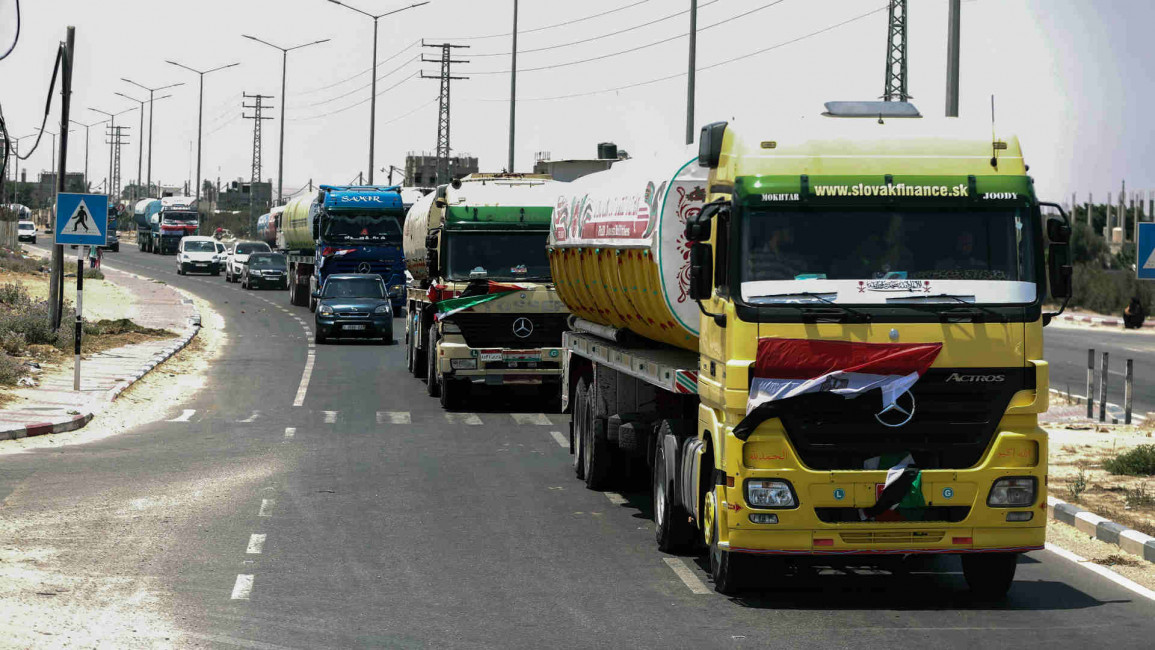Israel set to resume fuel deliveries to besieged Gaza Strip
Israel will on Wednesday resume supplies of fuel to the Gaza Strip after Israel’s Defence Minister halted the vital deliveries 12 days ago as a punitive measure.
Israel suspended the desperately needed deliveries of Qatari-financed diesel on 12 October, hours after Israeli troops shot dead five Palestinians who the army said broke through the border fence.
The suspension came just days after a United Nations-brokered deal to supply the territory with Qatari-bought fuel came into effect.
"In accordance with recommendations by security bodies it has been decided to resume the supply of 'Qatari fuel' from tomorrow," the Israeli defence ministry statement said on Tuesday night.
On Sunday, Defence Minister Avigdor Lieberman ordered the reopening of Gaza's goods and pedestrian crossings into Israel after a four-day closure.
His office cited "a decrease in the violent events in Gaza over the weekend and efforts Hamas made to restrain" border protests as grounds for the reopenings.
Twitter Post
|
Israeli forces have killed more than 200 Palestinians in Gaza since near-daily protests began along the border on 30 March against Israel’s crippling 11-year blockade of the impoverished territory.
The protesters are also demanding to be allowed to return to lands now inside Israel, from which their families fled or were displaced during the 1948 war surrounding the creation of Israel.
The fuel deal, brokered by the United Nations and backed by the United States, Israel and others, briefly brought thousands of litres of diesel into Gaza daily to boost the impoverished territory's electricity supply.
But the daily shipments to Hamas-ruled Gaza's only power station lasted merely for three days.
Under the limited agreement Qatar was to pay $60 million for fuel to be brought into Gaza over six months.
In 2007, Israel imposed a land, sea and air blockade on the strip, effectively turning the coastal enclave into an open-air prison, where basic necessities such as food, fuel and medicines are severely controlled.
Critics say the blockade amounts to collective punishment of the coastal enclave's two million residents. The UN says Gaza will be uninhabitable by 2020, but human rights organisations say Gaza has reached inhabitability now.



![Lebanese protesters take part in a demonstration in support of Palestinians on 18 May 2021 in Beirut, Lebanon. [Getty]](/sites/default/files/styles/image_212x120/public/2021-06/GettyImages-1232967618.jpg?h=58c8a5e7&itok=VxDT8yaL)